New
Click-to-Instagram Direct Ads

Those who have used Klaviyo know what a powerful tool it is. From emails to SMS to customer feedback, you can do it all using a single dashboard. However, it still lacks a native channel that makes it difficult for brands to reach out to customers in emerging economies—WhatsApp.
The logic is simple—one out of every five dollars spent is cross-border, highlighting the immense potential in emerging markets. According to Zion research, cross-border commerce will hit $4.8 trillion in 2027. No wonder brands are hopping on this fast-growing channel.
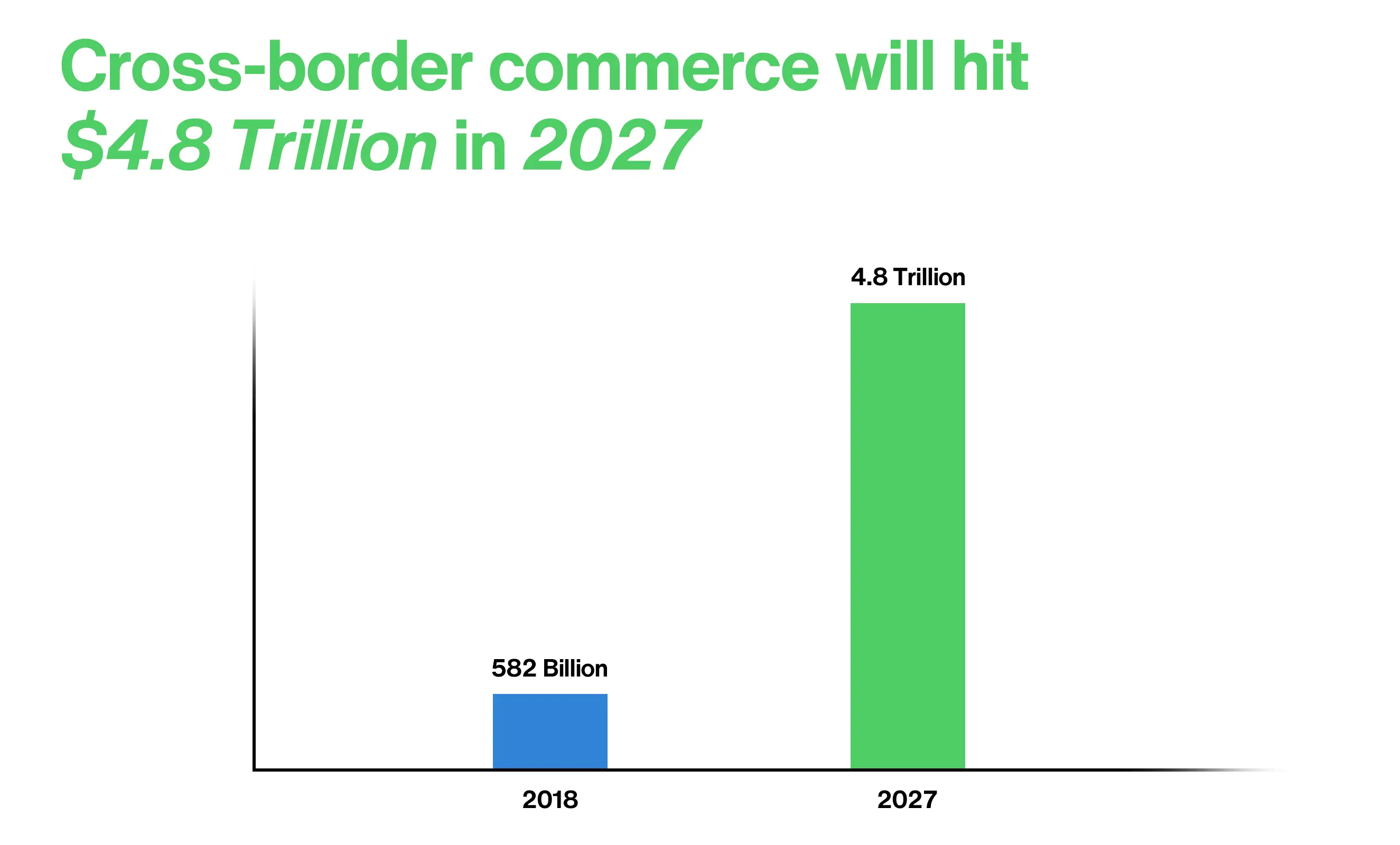
Traditional outreach methods like email and SMS often fall short in emerging economies.
Perceptions of scam and intrusiveness mar SMS, while emails, predominantly utilized in tier 1 cities, lack the immediacy and interactivity that today's consumers demand.
The traditional one-directional communication of email and SMS is slowly losing customer appeal. Additionally, brands' indiscriminate spamming has led to widespread channel fatigue, causing a sharp decline in email open rates and reducing SMS to merely a vehicle for one-time passwords (OTPs).
With its universal appeal and conversational interface, WhatsApp bridges this gap, offering a more engaging and secure platform for customer interaction.
Klaviyo has long been the backbone of e-commerce communication, offering sophisticated operational workflows deeply ingrained within its ecosystem. The integration with QuickReply.ai is not just an addition but a transformative upgrade that combines Klaviyo's robust infrastructure with WhatsApp's dynamic conversational capabilities.
The Klaviyo and QuickReply.ai integration means personalized, conversational marketing becomes the norm. Brands can now:
The integration between Klaviyo and QuickReply.ai blends marketing automation with conversational commerce, primarily facilitated through the use of webhooks. To understand the mechanics of this integration, let's first understand how it works.
Think of webhooks as messengers on the internet. When a specific event occurs, like a visitor abandoning their shopping cart on your website, Klaviyo detects this action and triggers a webhook. This webhook then rushes to notify QuickReply.ai, carrying detailed information about the event.
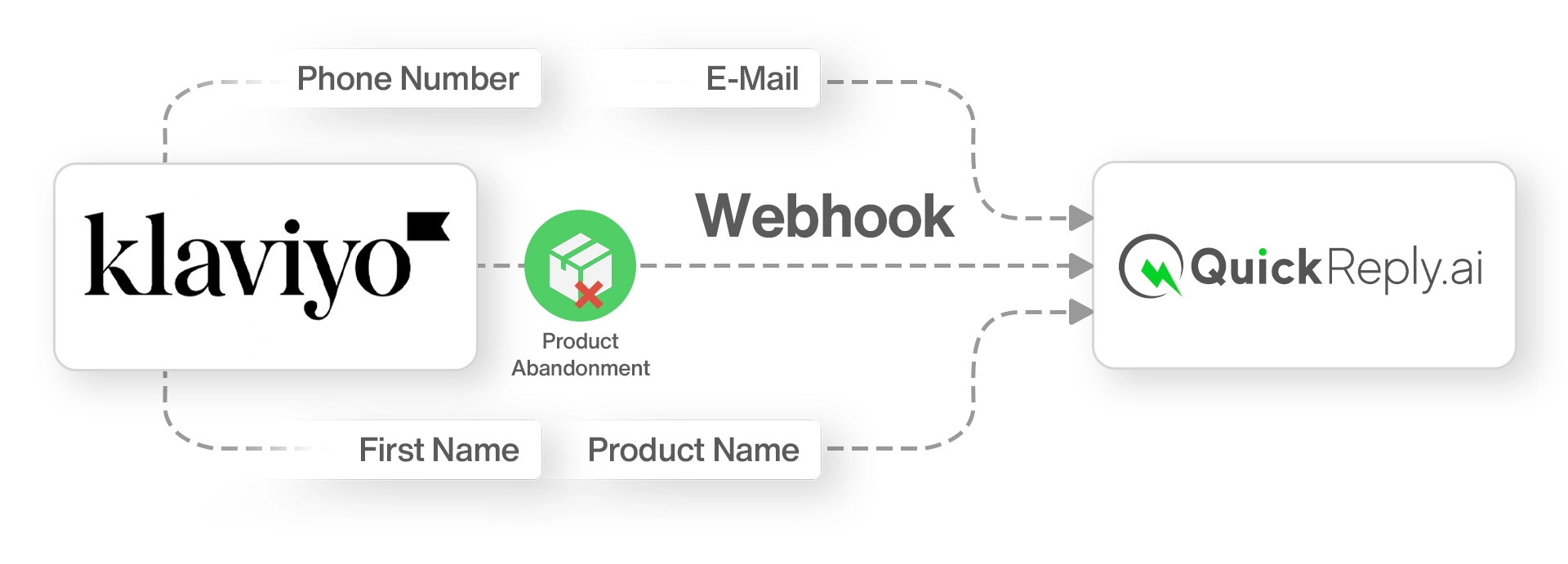
Let's consider a potential customer, Shireen, browsing a pair of sneakers on your e-commerce platform but deciding not to purchase and exit the site. This action generates a "product page abandonment" event within Klaviyo. Using a configured webhook, the platform immediately informs QuickReply.ai of this occurrence, transmitting crucial details such as Shireen's name, phone number, email address, and the specific product Shireen was interested in. The significance of the phone number cannot be overstated—the key unlocks the door to initiate a conversation on WhatsApp.
Another common scenario is when a shopper, Ravi, starts filling out his details on the checkout page but stops midway. This "checkout started" event is another trigger for Klaviyo, which, via webhook, sends the information to QuickReply.ai. Armed with this data, QuickReply.ai can now craft a customized WhatsApp message encouraging Ravi to complete his purchase, creating a seamless transition from website interaction to personalized messaging.
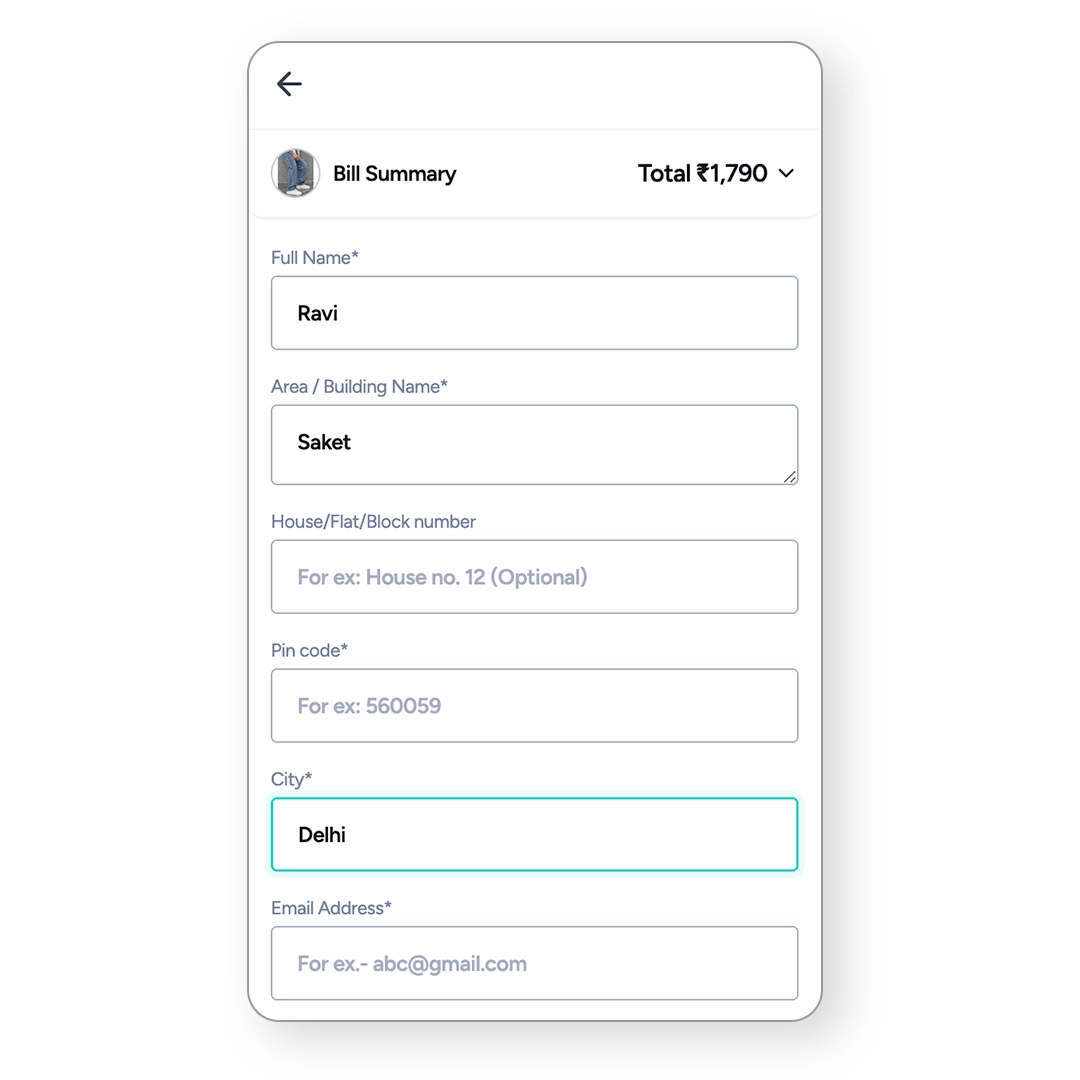
This integration might seem like it's powered by APIs, which traditionally allow for two-way data exchange. However, it cleverly utilizes webhooks for a one-directional data flow. This method ensures QuickReply.ai receives timely updates from Klaviyo without necessitating a back-and-forth communication setup. This integration combines the strengths of Klaviyo's analytical depth with QuickReply.ai's conversational engagement capabilities.
The breadth of data that can be shared from Klaviyo to QuickReply.ai includes, but is not limited to:
Upon receiving data from Klaviyo, QuickReply.ai enables businesses to run comprehensive buyer journeys on WhatsApp independently. The platform offers versatility, whether mimicking email and SMS campaigns or devising unique WhatsApp-centric strategies. For instance, a three-step drip campaign for cart abandoners, previously executed through Klaviyo via email and SMS, can now be replicated or creatively adapted on WhatsApp.
Imagine the scenario with Shireen again. With the phone number and interest data received, QuickReply.ai can kickstart a product abandonment sequence on WhatsApp, gently nudging Shireen toward completing the purchase. This approach recaptures lost sales opportunities and does so in a personalized, engaging manner that resonates with customers.
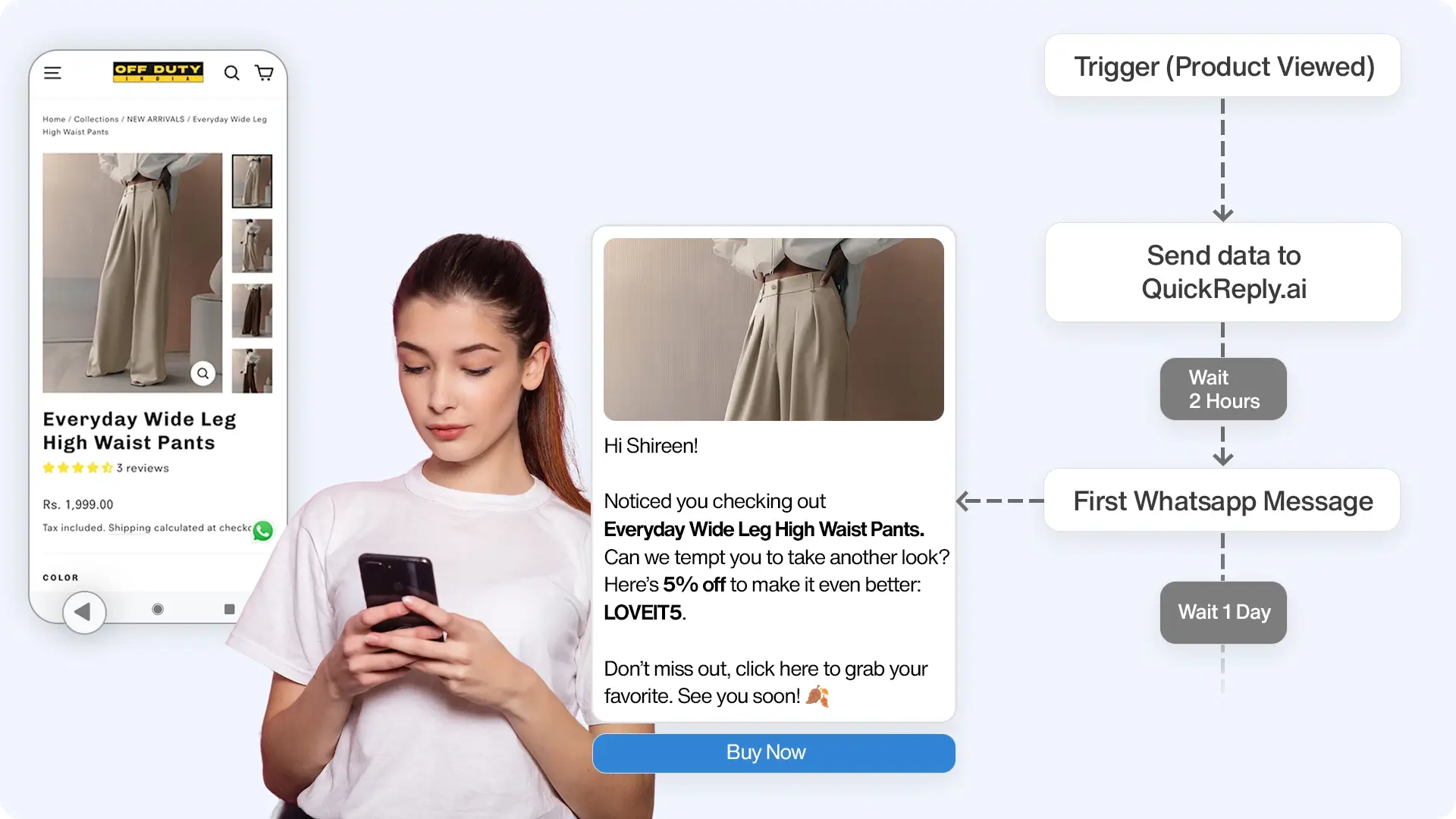
In Ravi's case, when he halts the checkout process, Klaviyo immediately identifies this as a critical engagement point and shares the data with QuickReply.ai with all the necessary details: his contact information and the items he was interested in. QuickReply.ai then uses this data to send a personalized WhatsApp message to Ravi, gently encouraging him to complete his purchase.
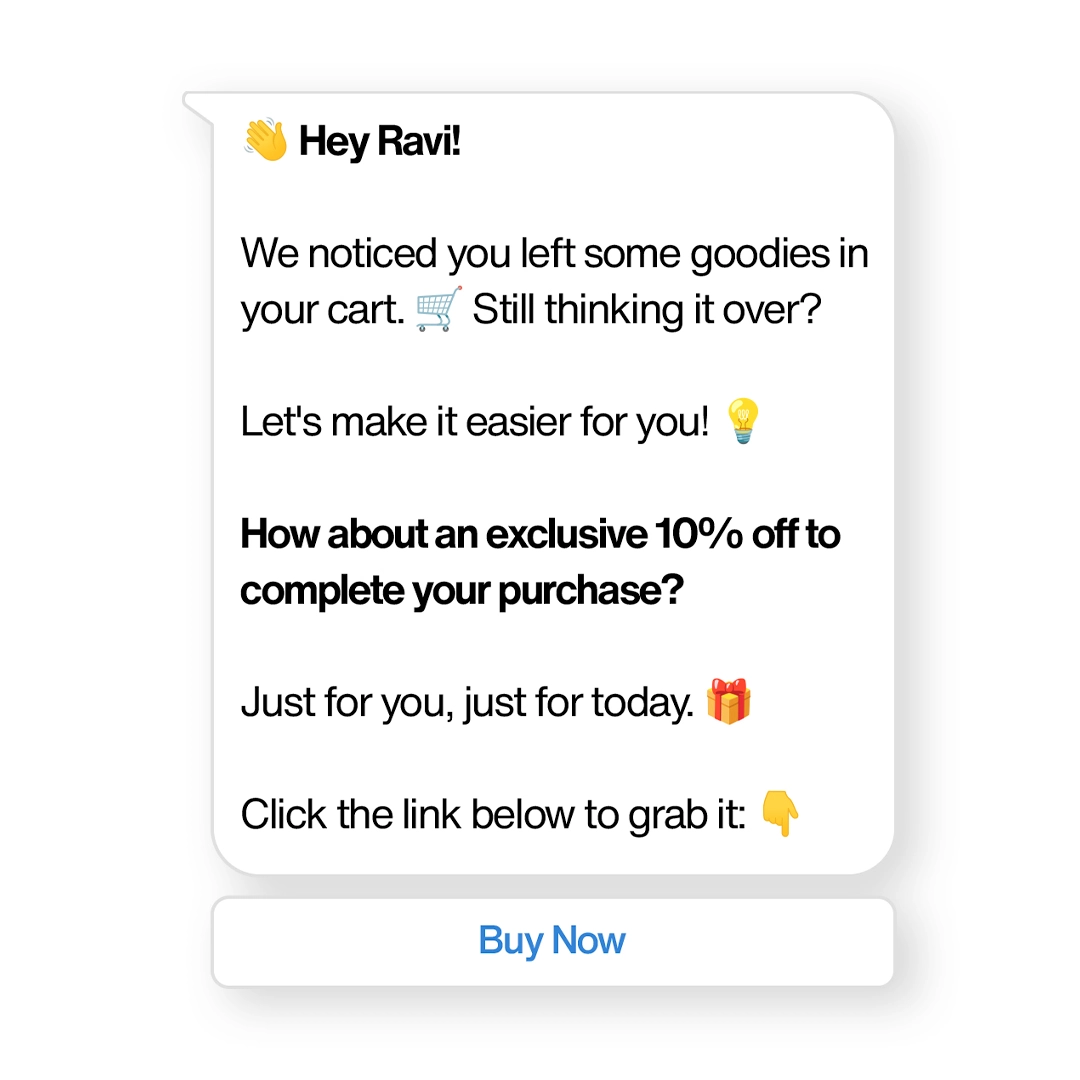
Wrapping up, it is established now how the best of two worlds can benefit brands. By marrying the operational excellence of Klaviyo with the conversational prowess of WhatsApp via QuickReply.ai, DTC brands are poised to unlock unprecedented levels of engagement and growth. This integration is not just about adding another channel; it's about creating more profound, more meaningful connections with customers, wherever they are.
Tool and strategies modern teams need to help their companies grow.
Leverage the untapped growth potential of WhatsApp marketing to acquire and retain customers.